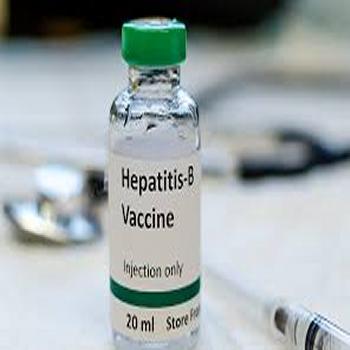Recommendations from the CDC for Hepatitis B Vaccination:
Routine Childhood Vaccination:
- The Hepatitis B vaccine is recommended for all infants, with the first dose administered at birth.
- A total of 3 doses are recommended, with the second dose given at 1-2 months of age and the third dose at 6-18 months.
Vaccination for High-Risk Groups:
- Unvaccinated adults at risk for Hepatitis B, including:
- Individuals with multiple sexual partners.
- Men who have sex with men.
- People who inject drugs.
- Healthcare and Public Safety Workers: Individuals who may be exposed to blood or bodily fluids should be vaccinated.
- Individuals with Chronic Liver Disease: Those with chronic liver conditions are at increased risk and should be vaccinated.
- Dialysis Patients: Patients undergoing hemodialysis should receive the vaccine due to increased risk of HBV infection.
Post-Exposure Prophylaxis:
- Individuals exposed to Hepatitis B through needlestick injuries, sexual contact, or perinatal exposure should receive the vaccine along with Hepatitis B immune globulin (HBIG) as soon as possible, ideally within 24 hours of exposure.
Travelers:
- Individuals planning to travel to areas with high rates of Hepatitis B should consult healthcare providers regarding vaccination.
Important Considerations:
- The Hepatitis B vaccine is administered as an intramuscular injection.
- Common side effects may include soreness at the injection site, mild fever, and fatigue. Serious side effects are rare.
- The vaccine is effective in preventing HBV infection and its long-term complications, providing long-lasting immunity.
The Hepatitis B Vaccination is a vital measure in preventing Hepatitis B infection, protecting individual health, and contributing to public health efforts to reduce the burden of this preventable disease.
Why do I need the Hepatitis B Vaccine?
The Hepatitis B Vaccine is important for:
Preventing hepatitis B infection: Hepatitis B is a contagious virus transmitted through contact with infected blood or body fluids. Vaccination prevents the infection and its potential complications, such as liver cirrhosis and liver cancer.
Protecting high-risk groups: Individuals who work in healthcare, live with someone who has hepatitis B, engage in high-risk behaviors (e.g., injection drug use), or travel to regions where hepatitis B is common are at increased risk and should be vaccinated.
Preventing transmission from mother to child: Infants born to hepatitis B-positive mothers are at high risk of infection, and the vaccine helps protect newborns from contracting the virus at birth.
School and workplace requirements: Many healthcare facilities, schools, and childcare centers require hepatitis B vaccination as a preventive measure to reduce the risk of disease transmission.
Who should receive the Hepatitis B Vaccine?
The Hepatitis B Vaccine is recommended for:
Infants: The CDC recommends that all infants receive the hepatitis B vaccine as part of the routine childhood immunization schedule:
First dose: At birth, ideally within 24 hours.
Second dose: At 1–2 months of age.
Third dose: At 6–18 months of age.
Unvaccinated children and adolescents: Those who have not been vaccinated as infants should receive a catch-up vaccination series.
High-risk adults, including:
Healthcare and public safety workers may be exposed to blood or body fluids.
Individuals with chronic liver disease or HIV infection.
People with multiple sexual partners, men who have sex with men, and those who inject drugs.
Household members or sexual partners of individuals infected with hepatitis B.
Travelers to regions where hepatitis B is common.
Pregnant women: Pregnant women at risk of hepatitis B should be vaccinated to protect themselves and reduce the risk of transmitting the virus to their babies.
How many doses of the Hepatitis B Vaccine are needed?
The standard vaccination schedule for hepatitis B typically involves three doses:
Dose 1: The initial dose is often given at birth for infants or at any time for older individuals.
Dose 2: Administered at least one month after the first dose.
Dose 3: Give at least four months after the first dose and two months after the second dose. The final dose is usually given to infants between 6 and 18 months of age.
In some cases, a two-dose series (with doses administered one month apart) may be available for adults aged 18 and older using a specific vaccine formulation. Your healthcare provider will determine the best schedule based on age and health status.
